
Coaching individual development in workplace
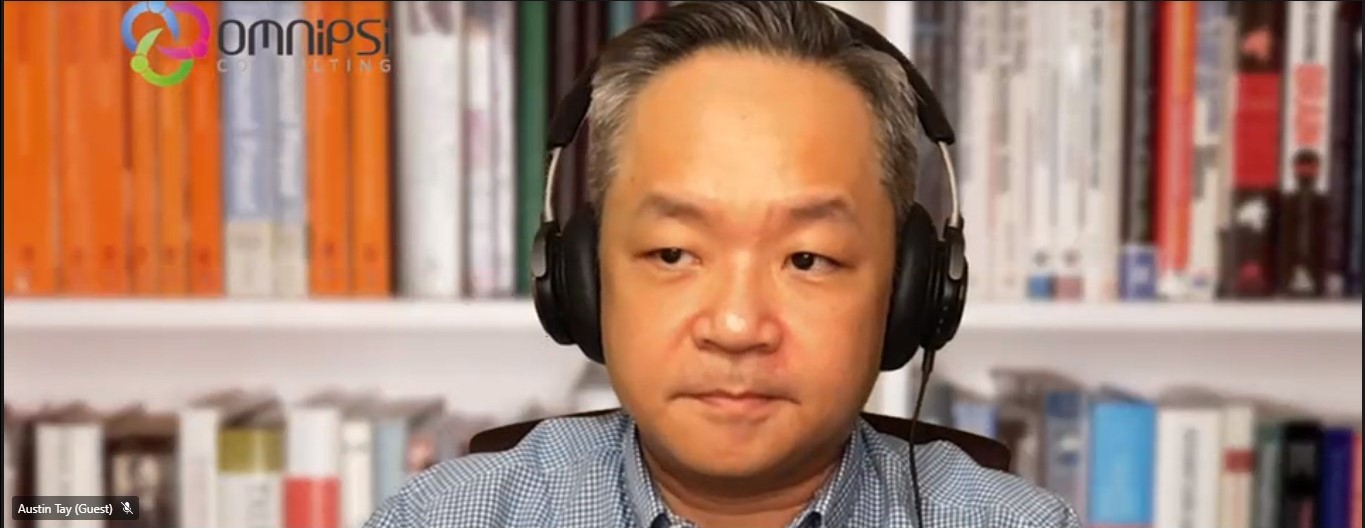
Dr Tay explaining the benefits of coaching in the workplace
Attracting a crowd of 164 participants to the “Coaching in Organisations” online workshop, organised by Faculty of Arts and Social Science (FAS) on 4 March 2021 via Microsoft Teams, the online workshop aimed to educate participants on the benefits of coaching and its role in helping individuals develop in workplaces.
Moderated by FAS Dean Dr Lee Lai Meng and FAS academic Tan Soon Aun, the online workshop saw invited speaker Founder and Principal Consultant of OmniPsi Consulting Dr Austin Aloysius Tay speaking on the definition of coaching, relevant skills required to be a coach, the usage of coaching and the ways to conduct coaching.
With Dr Tay kick-starting the online workshop by explaining the meaning of coaching, participant learnt that coaching is a ubiquitous tool used to develop people’s skills and abilities, which then increases performance at work. Participants also understood that coaching allows individuals to identify issues and challenges, and equips them with the relevant skills to overcome problems and challenges.
“Conversations that take place between a coach and a coachee during the coaching session focus primarily on helping the coachee to discover answers for themselves. In this sense, we see coaching as a corrective tool or a positive and proven approach to help people explore and achieve their goals and ambitions. However, coaching is carried out by qualified people, hired by the organisation or the coachee, who will work with the clients to improve their effectiveness and performance, and to help them fulfil their potential,” explained Dr Tay.
He went on to describe the differences between coaching and mentoring. “Coaching is done in short term and it is performance-driven. The sessions are structured, where meetings are scheduled, and coaches are expert in given areas. In coaching, thought-provoking questions are used, and this results in producing a specific and measurable outcome to depict improvement or positive change in the desired performance area,” said Dr Tay.
“Meanwhile, mentoring has a long-term time frame, and it is development driven. Unlike structured coaching sessions, mentoring is informal and is conducted by senior and expert in a specific area. In the mentoring session, the mentee asks more questions to tap into the mentor’s expertise, and this produces a result that can change over time. This shows that mentoring focuses on the development of mentee rather than specific measurable results or changed behaviour,” added Dr Tay.
The speaker also enlightened participants by informing them that coaching skills can be acquired through accredited courses. He listed a number of coaching programmes, namely Transformational Coaching, Neuro-Linguistic Programming, Co-Active Coaching, Whole Person Coaching, Systemic Coaching, Wellness Coaching, Leadership Coaching and Strengths Coaching.
“Becoming a qualified coach is not all, as you will need to possess other skills to successfully coach your clients. Some of the extra skills required are to be structured yet flexible, collaborative where you establish the coaching relationship, compassionate, good listener, assertive, evaluative, reflective, and resourceful,” advised Dr Tay. He also further advised participants that a coach needs to be ethical to understand that not all coaching is the same; they have to say no at times, improve and upgrade, have self-compassion and get peer support and supervision.
“So how is coaching used? It is subject to the coaching agreement, but basically it is to help individuals find solutions to issues and challenges, or to increase their workplace performance. It is also used to change mindset and activate behavioural change, and this is where the understanding of personality can be useful. In coaching, the coach provides the coachee with tools and skills that they can continue to use after the coaching agreement. Coaching also aims to help coachee widen their perspectives and approaches. There are various ways to conduct coaching, which can either be through face-to-face, video call, asynchronous (email or messaging), assignments, or practice,” explained the speaker.
He went on to remind participants that before a coach starts coaching, it is important that the coach understands the coaching mandate, for instance knowing the purpose of coaching. “As a coach, you will need to meet your potential coachee and build that chemistry, reach a coaching agreement, and do a schedule and time-frame for your coaching,” said Dr Tay.
Further into the online workshop, participants were informed of the coaching process, which involves the coach speaking to the stakeholders to get different perspectives, setting coaching goals, conducting three or four ways meeting, discussing issues and ways to achieve the coaching goals, asking the right questions, using the skills and tips learnt, reviewing, and lastly completing the coaching engagement.
The online workshop ended with an interactive Q&A session.
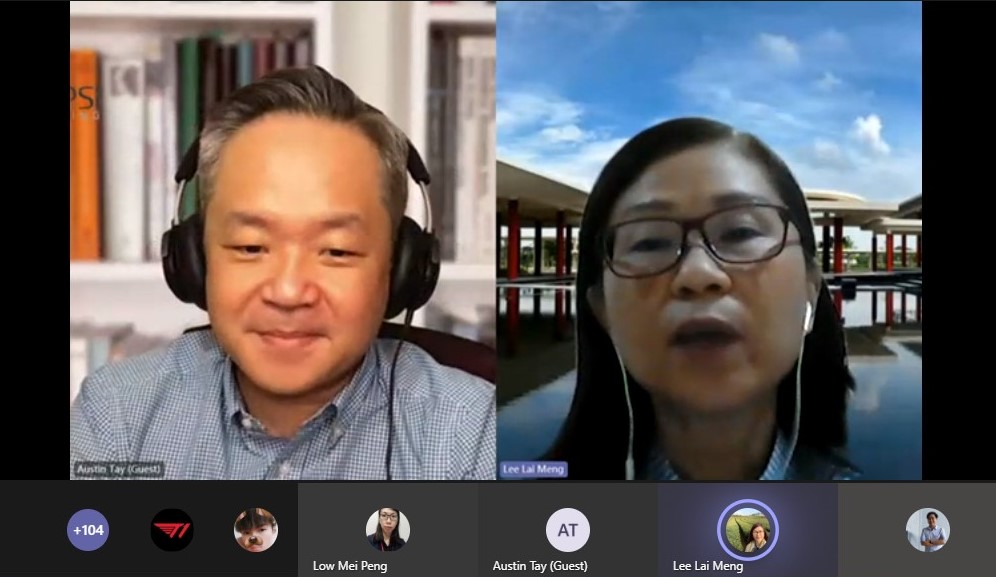
From left: Dr Tay and Dr Lee during the online workshop
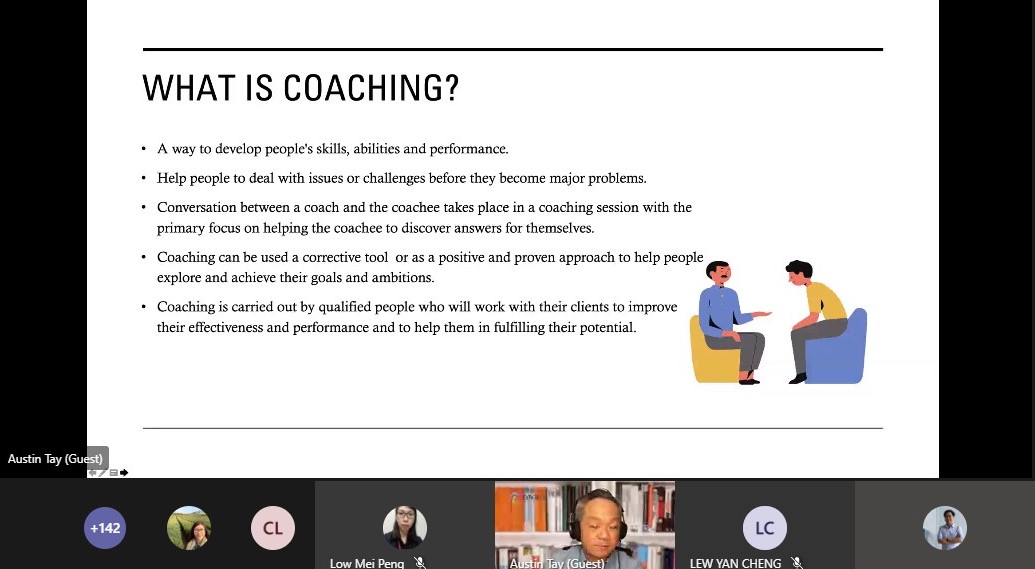
The slide on coaching and its functions
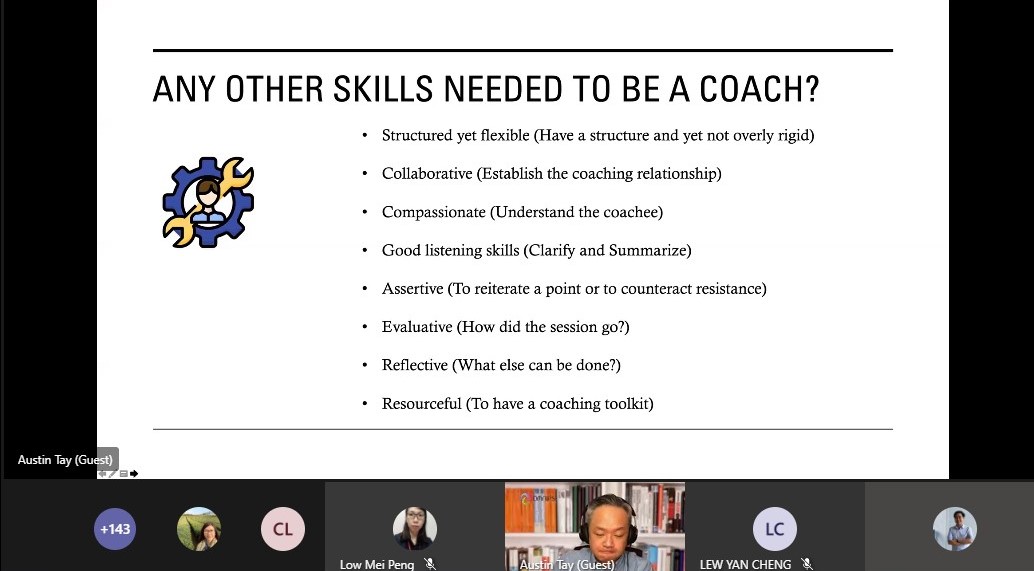
Slide on the additional skills required by a coach
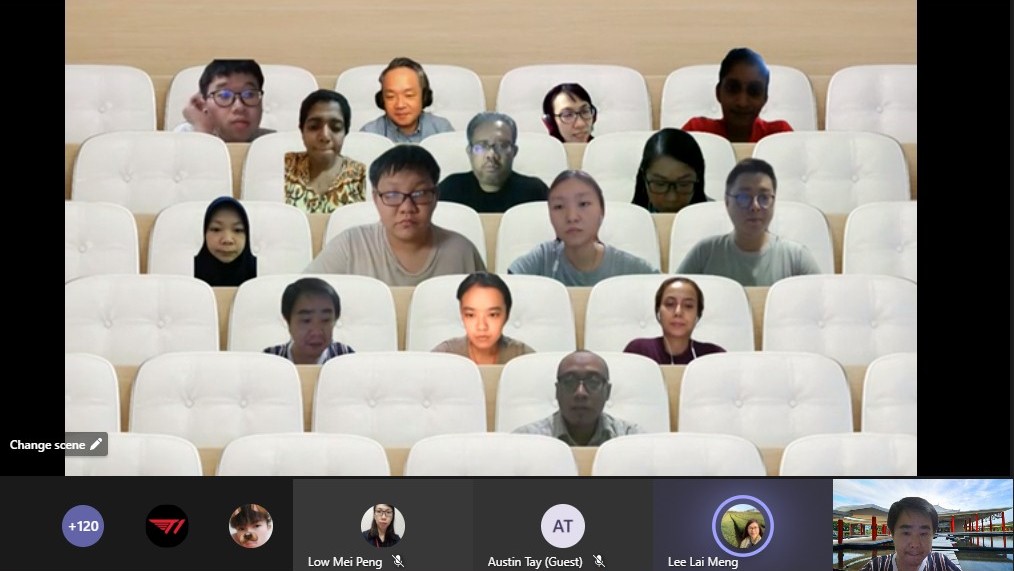
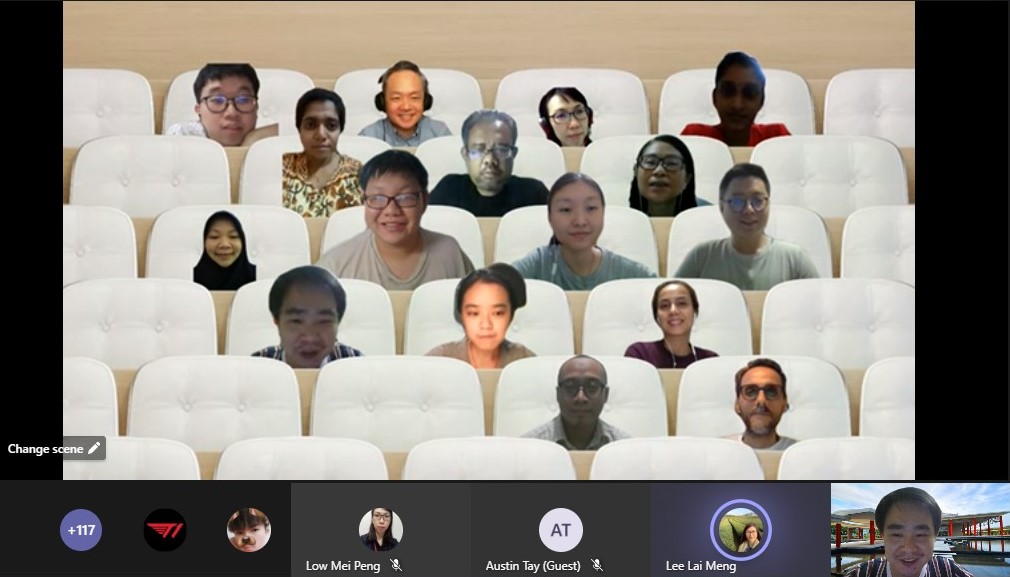
Screenshots of the participants at the end of the online workshop
© 2021 UNIVERSITI TUNKU ABDUL RAHMAN DU012(A).
Wholly owned by UTAR Education Foundation Co. No. 578227-M LEGAL STATEMENT TERM OF USAGE PRIVACY NOTICE